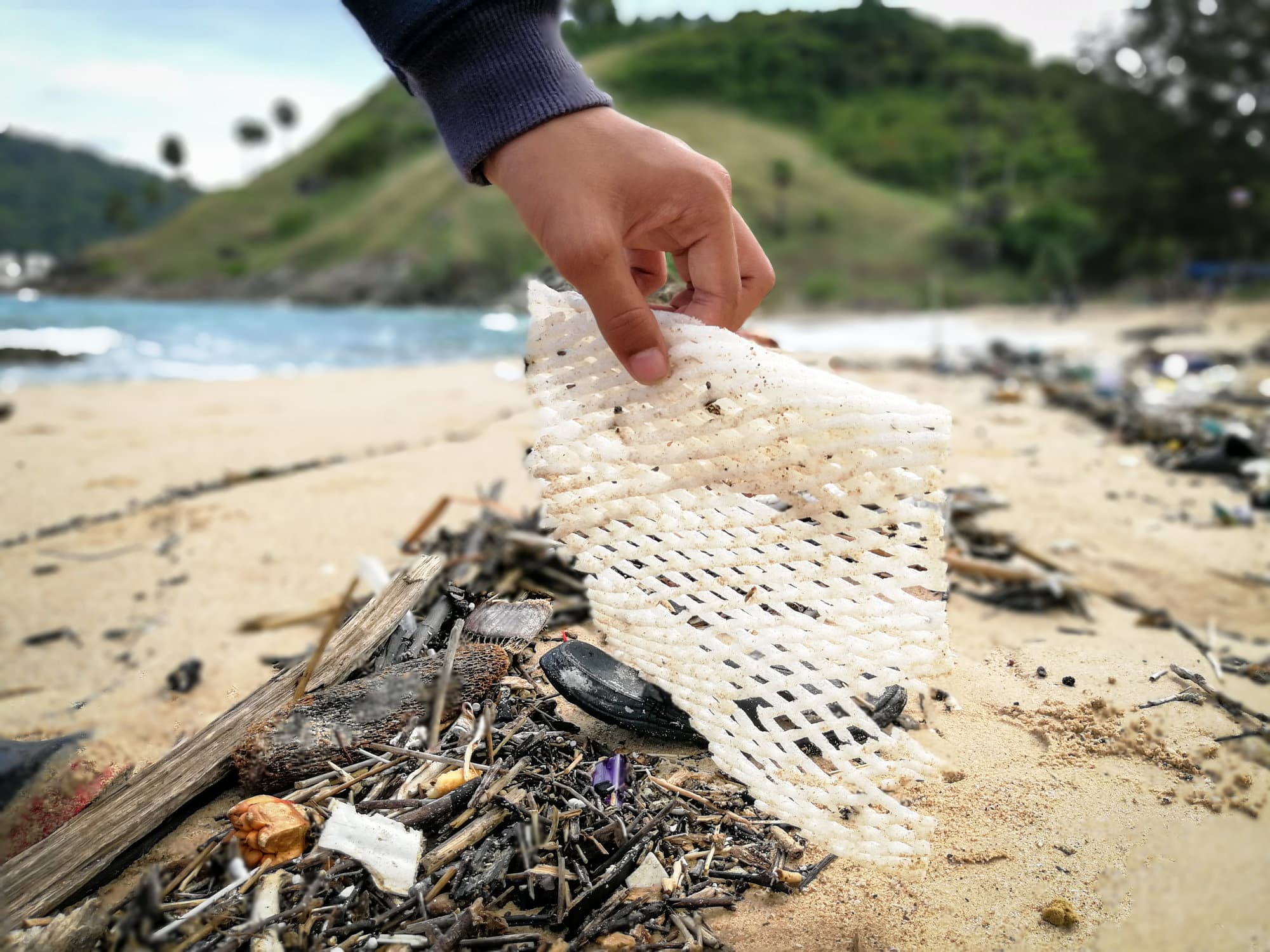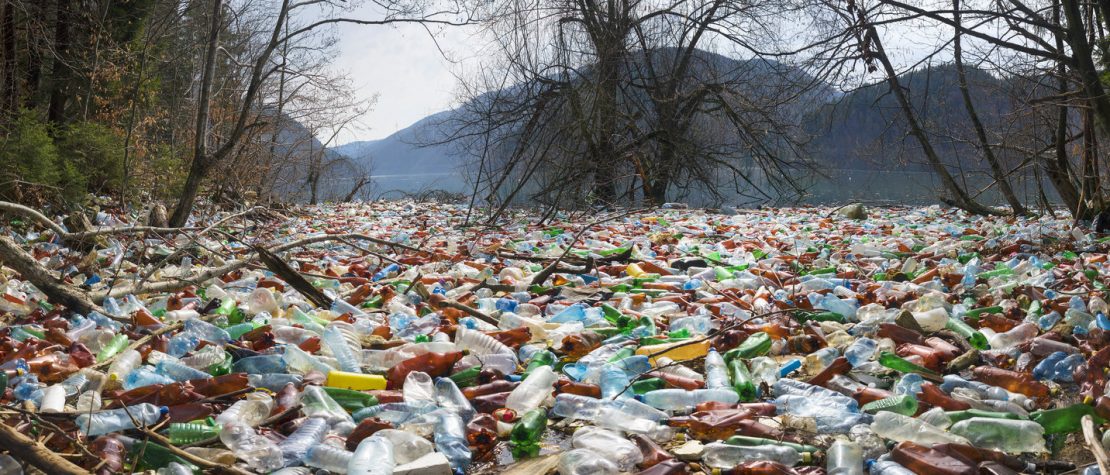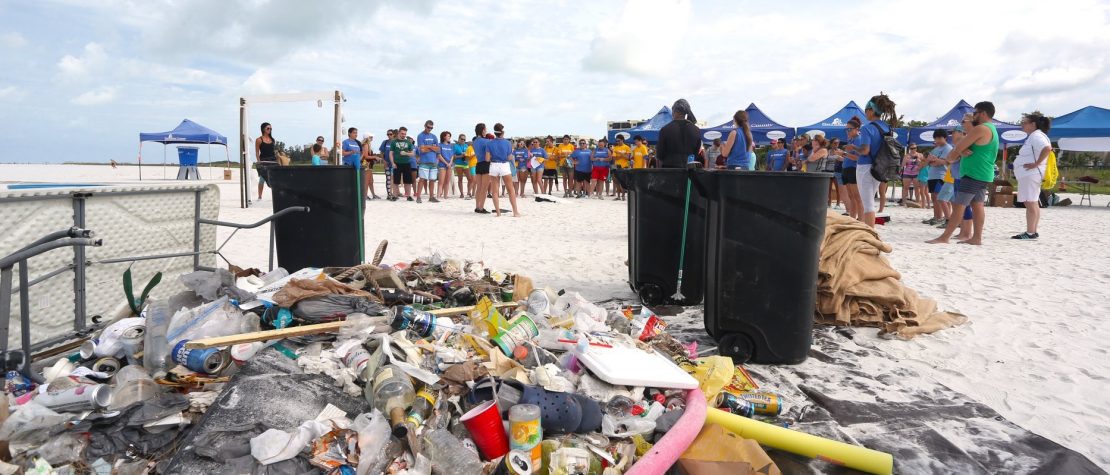
Do Beach Cleanups Actually Make a Difference?
The international community is scrambling to tackle the plastic pollution blanketing the ocean. Some enterprises create revolutionary contraptions that are supposed to filter plastic out of the ocean without trapping marine mammals, while others employ crews of boats that literally scoop pounds of plastic from the ocean daily.
Everyone’s trying to do their part, and without being employed by one of these large enterprises, most people get involved through volunteer beach cleanups—which presents an interesting argument. Do beach cleanups matter if the amount of plastic going into the ocean is more than what’s collected during a beach cleanup? Or worse, do beach cleanups create more waste and not actually do anything to solve the plastic pollution dilemma?
Leaky Faucet Argument
A popular argument surrounding beach cleanups and plastic pollution is that cleaning up plastic is like mopping the floor or scooping buckets of water while your sink is still overflowing. Eight million metric tons of plastic go into the ocean annually and our efforts make little to no difference based on this analogy. Some people wholeheartedly agree with this, while others believe that every little bit counts in regards to plastic pollution.

Stopping Pollution at the Source
The most valuable part of beach cleanups is the data gathered on what items are polluting the ocean. When people walk the beach and pick up toothbrushes, cigarette butts and plastic water bottles, they think, “Hey, I use a lot of these things. Could they be ending up in the ocean?”
With most things in life, something doesn’t change unless someone truly cares about it. At beach cleanups, people get outside and experience the beautiful beach everyone is telling them they need to save and possibly have an “aha moment” where they realize it’s their beach, too.
Education at the Cleanup
It’s important that every beach cleanup is centered around educating the public on plastic pollution and how their daily habits impact the environment. Sure, picking up trash on the beach one day won’t make a lasting impact, but hundreds of people cutting their usage on plastic bags, plastic toothbrushes and plastic water bottles saves tons of plastic from entering the ocean. Imagine if those same people go on to educate their friends and family—it creates a chain reaction of more responsible living.

Collecting Data on the Trash
At your beach cleanup, having a data collection plan ahead of time will make the whole process a lot easier than trying to sort through all the trash at the end. Have volunteers go out in groups with one person designated for recording the types of trash found on a piece of paper or on an app like Clean Swell. Each volunteer will bring their findings to the event host at the end of the cleanup so all that’s left to do is weigh the garbage.
If you do end up sorting through all the trash at the end of the cleanup, make sure everyone involved is wearing thick gloves and close-toed shoes. Large piles of trash can hide sharp objects like broken glass bottles and syringes.
Beach Visits Are Associated With Wellbeing
According to a study by Sage Environment and Behavior, visits to the beach increase well-being and as far as beach activities go, people feel cleaning the beach is a more meaningful activity than simply walking the beach. Beach cleanups are great for getting the community involved, meeting others and getting outside. Plus, when you add extras to the event like a complimentary beach yoga class or live music, people are more likely to join and help out with the cleanup.

The Final Verdict on Beach Cleanups
Beach cleanups don’t rid the ocean of plastic and trash, but they do increase awareness about pollution and educate individuals through action. Overall, beach cleanups are a worthy cause to bring people together to focus on the environment and learn ways to protect it.